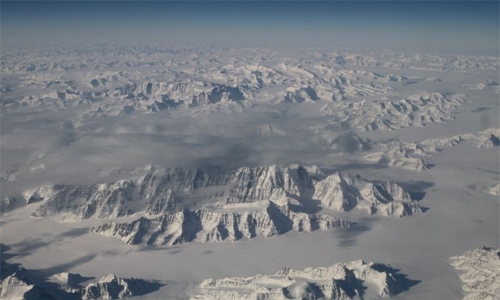US scientists raise bar for sea level by 2100
Miami : In the last days of Barack Obama's administration, US government scientists warned even more sea level rise is expected by century's end than previously estimated, due to rapid ice sheet melting at the poles.
The report by the National Oceanic and Atmospheric Administration (NOAA) set the "extreme" scenario of global average sea level rise by 2100 to 8.2 feet (2.5 meters), up half a meter from the last estimate issued in 2012.
"We raised the upper limit of our scenarios," lead author William Sweet told AFP.
"It is possible. It has a very low probability. But we can't discount it entirely."
The figures are among the highest ever issued by the US government, and take into account new scientific studies on the disappearing ice cover in Greenland and Antarctica.
"Recent (scientific) results regarding Antarctic ice sheet instability indicate that such outcomes may be more likely than previously thought," said the report, released on January 19.
It also revised the lower end of the anticipated range, saying nearly one foot (0.3 meters) is expected by 2100, up from four inches (0.1 meters) previously.
This put the NOAA report closer in line with the 2013 United Nations Intergovernmental Panel on Climate Change, which said global sea levels would likely rise from one to three feet by the end of the century.
The US space agency NASA has also warned that significant sea level rise is "unavoidable," given mankind's continued burning of fossil fuels like oil and gas that contribute to warming the planet.
In 2015, NASA said the Earth is likely locked in to at least three feet of sea level rise, and probably more.
But the big question remains: how soon? Researchers do not know how soon the seas will rise, and whether they will hit these levels in this century or beyond.
"We are not projecting anything. Everything is dependent on the amount of future heating, ocean and atmospheric heating," explained Sweet.
Related Posts

